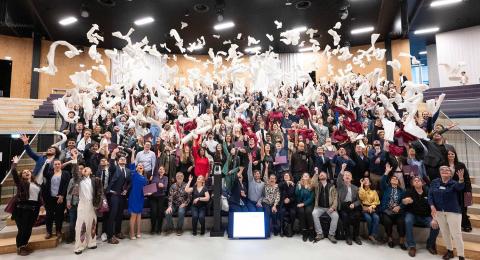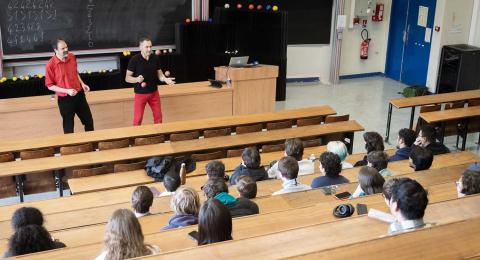Economie
-
-
Informations
- Problematize an economic question and contextualize it socially, historically and within an academic literature.
- Think in terms of models to reach a deeper understanding of an economic problem and evaluate potential solutions.
- Collect, treat and analyze multi-dimensional economic datasets at research level.
- Communicate professionally on a research outcome in front of various audiences.
- Behave professionally as an economist, individually and collectively, in various organizations and in the whole society.
Objectifs de la formation
The objective of this master's degree is to provide a general curriculum in economics at the research level, allowing for a continuation into a PhD program.Students will acquire the fundamental technics and concepts in economics, both theoretical and empirical, as well as a critical thinking about the way to use them.The first year of the program (M1) is structured around 8 compulsory core courses that form the common ground on which the research specialization in the second year (M2) will be based, supplemented by two optional discovery courses and two research projects.The M2 is entirely optional, allowing students to build, under the supervision of the faculty members, their own specific curricula adapted to their personal research agenda. Some will choose to specialize fully in one of the three fields of excellence of the Master's degree (1. Trade, Geography and Development Economics 2. Public and Behavioral Economics 3. Advances and Challenges in Macroeconomics). Others will choose more diversified and original combinations, allowing cross-fertilization between areas that are treated in a conventional way independently.The Research Master thesis will allow students to demonstrate their ability to conduct independent, original, and innovative scientific research. To this end, they will mobilize all the skills acquired during their master's degree.
Public visé et prérequis
BA Economics, BS Mathematics, Licence d'Economie, Licence de Mathématique









